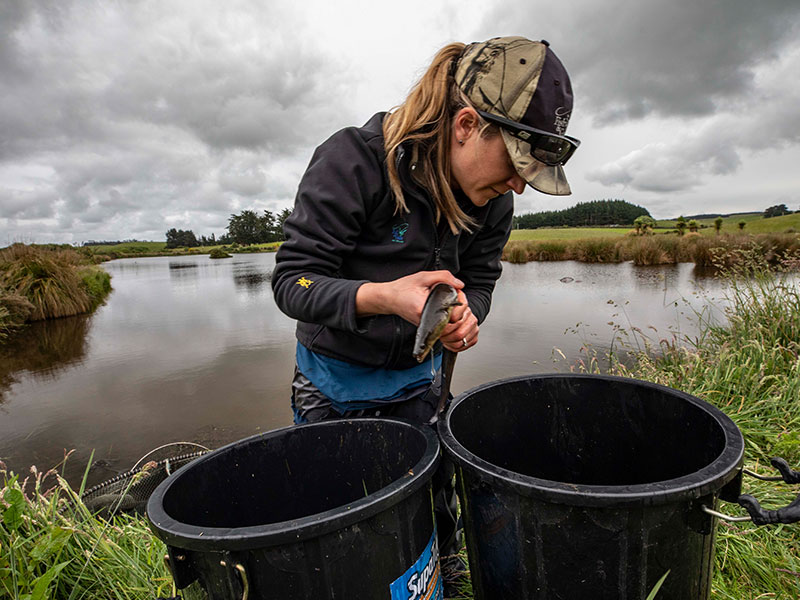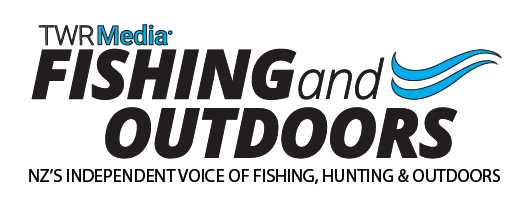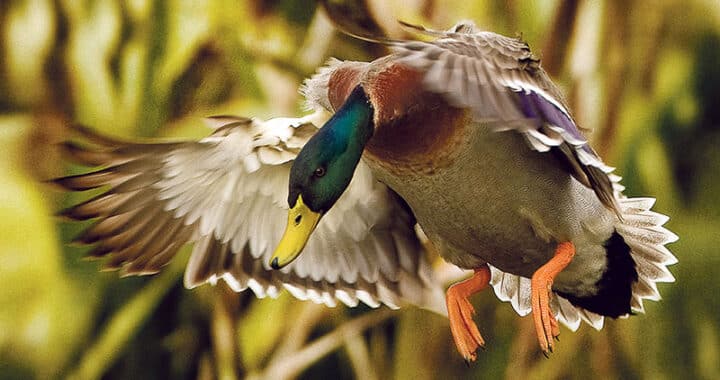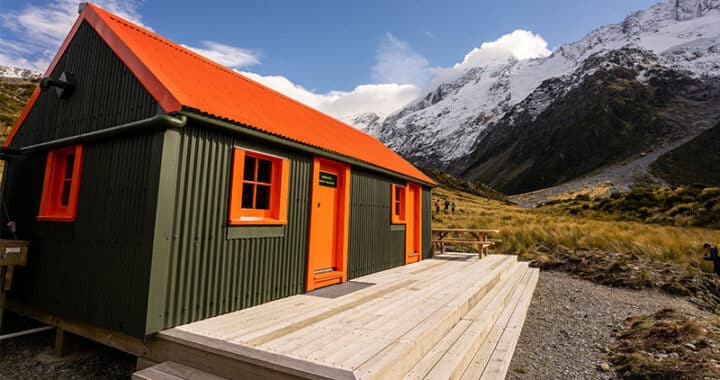Endangered eels find refuge in hunter-created wetlands
2 min read
1. Fish & Game officer Erin Garrick counts eels after an overnight set in a Tokanui wetland. Photo: supplied
A research conducted by Southland Fish and Game showed that hunter-created wetlands are ideal habitat for New Zealand’s native eels.
The organization conducted eel surveys in 46 waterfowl hunting ponds (duck ponds) located across the region last summer.
The aim of the study was to estimate the number and biomass (kg) of eels supported by Southland duck ponds and highlight the value of hunter-created duck ponds as habitat for the native shortfin eel and endangered and endemic longfin eel.
The endemic longfin eel is struggling nationally because of habitat loss and overexploitation.
The study showed that some ponds supported more than 100 eels and on average, each duck pond supported 16 shortfin eel weighing 10kg and 10 longfin eel weighing over nine kilogrammes.
In Southland, duck hunting is an important part of the local culture, and hunters, many of whom are farmers, put a huge amount of effort into creating waterfowl hunting habitat and in the process, habitat for many native birds and fish.

Southland Fish and Game estimates that there are around 7600 duck ponds in Southland, and when the numbers are extrapolated, Southland duck ponds support upwards of 120,000 shortfin eel and 80,000 longfin eel collectively weighing more than 150,000kg.
When doing the eel surveys, Southland Fish and Game Field officer Cohen Stewart said, “It was incredible to see how many eels call Southland duck ponds home.
“As we lifted our nets in some ponds, they were literally teaming with eels.
“The results of our work clearly highlight that hunters really are conservationists, not just of waterfowl, but our native fish as well.
“If it were not for these hunter-created wetlands, there would be far less habitat available for our native eels.”
Game bird hunters pay $4 of their hunting licence specifically to the Game Bird Habitat Trust (GBHT), which undertakes wetland restoration projects across the country.
Wetland conservation work by Fish & Game and the GBHT nationwide in places such as Takitakitoa (near Mosgiel) and Para wetland (near Blenheim) has restored hectares of wetland that had been lost as habitat. Duck hunting is popular across New Zealand so the wetland conservation work by Fish & Game nationwide will be providing healthy habitat not only for New Zealand’s waterfowl, but also for native eels, says Fish and Game Southland.



